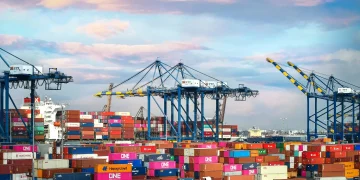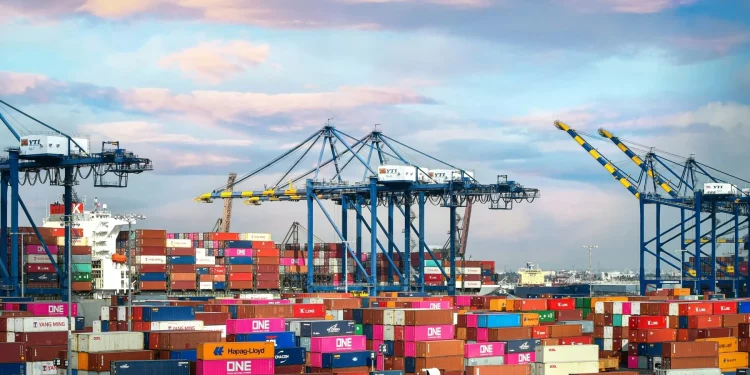By Maria Kalamatas | July 29, 2025
Rotterdam, July 29 — Heavy winds and flash floods sweeping through Northern Europe are forcing carriers to divert dozens of container vessels, disrupting schedules at some of the continent’s busiest maritime gateways.
“This isn’t just a minor delay — it’s a complete reshuffle of routing plans,” said Erik van der Meer, operations manager at EuroPort Logistics, which oversees cargo handling at Rotterdam. “We’ve had ships wait offshore for hours while others are redirected to avoid backlogs.”
Ports stretched beyond capacity
Rotterdam and Antwerp, both operating near full capacity, were hit hardest over the weekend. Wind gusts exceeding 90 km/h slowed crane operations, while flooding around road access points forced temporary closures.
Carriers scrambled to reroute containers to Bremerhaven, Le Havre, and Hamburg, putting pressure on secondary ports already facing seasonal peak volumes. Freight forwarders say some shipments bound for inland Europe are now delayed by up to four days.
Shippers face mounting costs
With rerouted vessels, trucking distances and storage fees are climbing fast. Exporters moving perishable goods — including Dutch produce and German pharmaceuticals — are booking emergency airfreight to avoid spoilage and meet delivery deadlines.
“Every extra day at sea or on the dock is a hit to margins,” van der Meer said. “For time-sensitive cargo, the costs multiply quickly.”
Carriers and ports race to adapt
Terminal operators are adding extra shifts to handle diverted cargo, while carriers are reshuffling schedules to prioritize delayed shipments. Some lines have begun offering discounts on expedited trucking for high-value loads to soften the blow for clients.
Analysts warn that ripple effects could extend into August, especially as European exporters ramp up volumes ahead of the back-to-school retail surge.
Outlook for the coming weeks
Weather forecasts suggest more storms could hit the region over the next ten days. Forwarders are urging clients to build flexibility into their plans, with buffer stock and alternative routes, to avoid further disruption.
“If we get another round of storms, we could see cascading delays across Northern Europe,” van der Meer added. “This summer is shaping up to be one of the toughest in recent memory.”





















